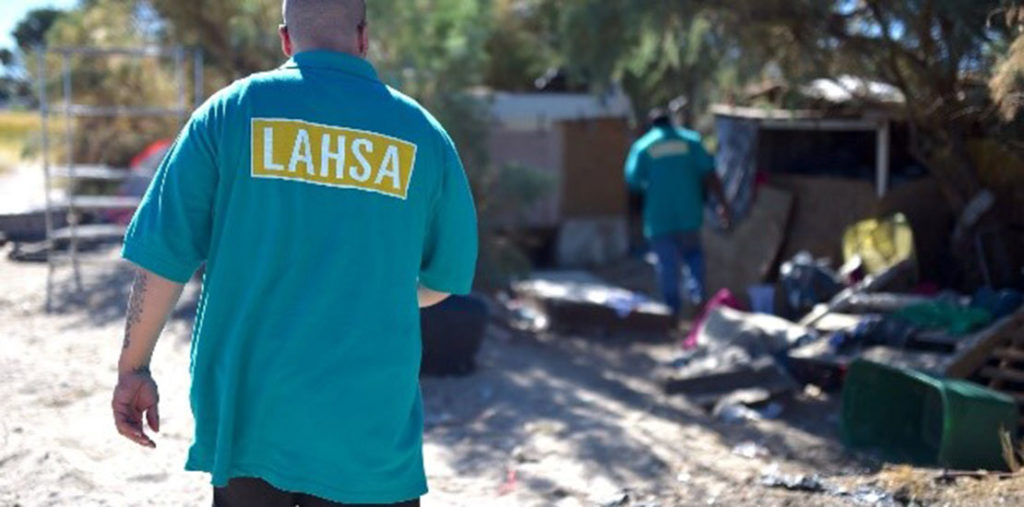
Understanding and responding to unsheltered homelessness is arguably the most urgent priority for LAHSA, its system partners, and the Los Angeles Continuum of Care.
Background
The Commission of the Los Angeles Homeless Services Authority (LAHSA) requested rapid response analysis to help it better understand the challenges unsheltered individuals face, including serious mental illness (SMI), access to housing services, and whether there are differences in service receipt or outcomes for different racial or ethnic groups.
The California Policy Lab analyzed LAHSA’s Homeless Management Information System data for 37,000 clients enrolled in Street Outreach services between July 2018 and June 2019, as well as subsequent HMIS enrollment data for a full year from Street Outreach enrollment for all clients to measure housing outcomes. CPL also linked HMIS client data to Department of Mental Health service data from January, 2006 to July 2018 in order to calculate a lower-bound estimate of the prevalence of clinically-diagnosed Serious Mental Illness among Street Outreach clients.
Research Project
Status: complete
This study improves our understanding of the unsheltered population by studying administrative data from a recent cohort of individuals served by LAHSA’s Street Outreach program.
Research Team
Nathan Hess, Colin Caprara, Dr. Robert Santillano, Janey Rountree
Results
We find that 17% of all Street Outreach clients were enrolled in interim housing, rapid re-housing, or permanent supportive housing within one year of enrollment in Street Outreach. Our analysis also shows a higher percentage of Black clients were enrolled into all three housing types than White clients. This finding holds when controlling for differences in age, gender, prior HMIS enrollment, and self-reported mental health concerns between Black and White clients.
We also find that at least 20% of Street Outreach clients had a clinical diagnosis of SMI at some time in the twelve years prior to their enrollment in Street Outreach between July 2018 and June 2019. This is a lower-bound estimate of SMI prevalence for this population obtained by linking Los Angeles County Department of Mental Health (DMH) service records to Street Outreach data.
Street Outreach clients with clinical diagnoses of SMI are more likely to be placed into interim housing, rapid re-housing, or permanent supportive housing than clients without observed DMH service history. This finding holds when controlling for differences in race, ethnicity, age, gender, prior HMIS enrollment, and self-reported mental health concerns.
